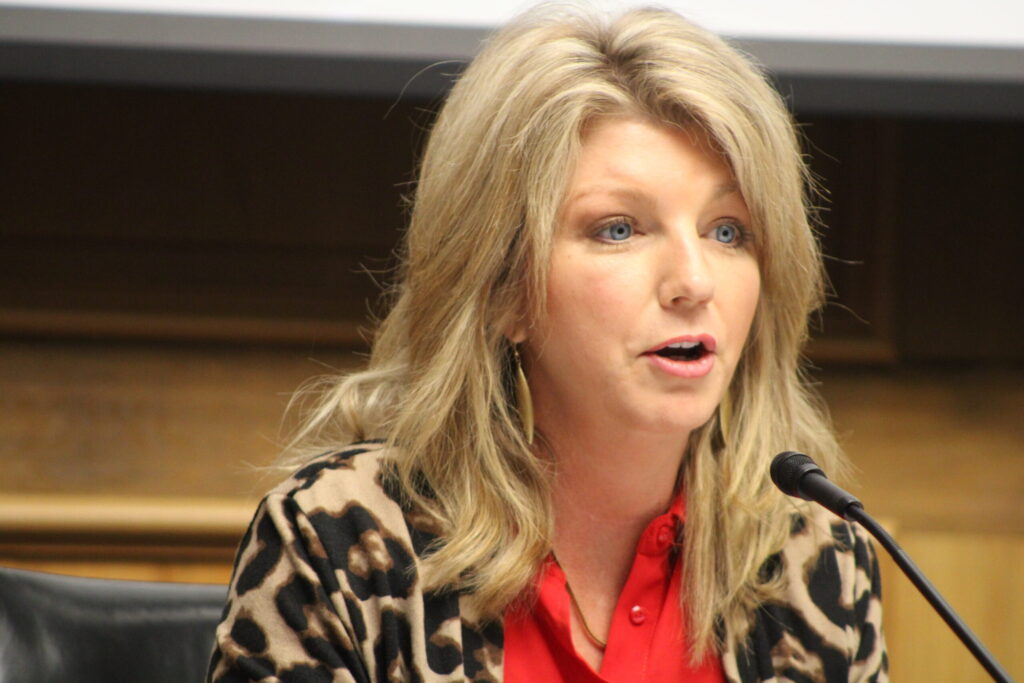In a worrying move for journalists, First Amendment lawyers, and good government watchdog groups, the Louisiana Legislature has included a bill that could remove much of the government's activities from public view. It seeks to significantly narrow state public records laws.
Sen. Heather Cloud (R-Turkey Creek) introduced Senate Bill 482, which would include “any advisory opinion, recommendation, or deliberation that forms part of the process of making government decisions or policies. It includes language that provides for records as an exception to the Public Records Act. It has been formulated. ”
Mr. Cloud's argument is that while the public has a right to know the records of public meetings, policy decisions, and the results of government deliberations, they do not have the right to know about the deliberations themselves unless they take place in public meetings. During a Senate committee hearing, she argued: “Releasing that information prematurely could be dishonest, misleading, and potentially disastrous. That means the final work product, that final press release, is fine; It is protected. It is the final product and will be part of the public record. But anything before that is a work in progress and should not be made available to the public.”
Gov. Jeff Landry apparently agrees. As the bill took its first steps toward becoming law last week, Landry issued a series of statements expressing strong support.
Mr. Landry's argument for justifying the law reform is as follows. Public Records Disclosure Request Law was enacted “It was used as a weapon to suppress deliberative speech.” Landry also said that during his time as state attorney general, he had to hire additional attorneys to respond to public records requests, many of which ” He complained that he thought it was “frivolous”.
Lawyers representing citizen watchdog groups and media outlets lined up to oppose the bill at the Senate committee hearing. The language of this law is so broad that it could be used, at the discretion of the government agency in question, to block access to large portions of existing public records regarding government proceedings. Many people pointed out that it was sexual.
The only way the public can access this private activity is through public records requests. Only some of the activities take place at public meetings. Scott Sternberg, attorney for the Louisiana Press Association, was very frank in his assessment. In his testimony, he said, “This exemption is an abolition of the Public Records Act.''
Get the morning headlines delivered to your inbox
Several academics and citizen watchdog groups expressed concerns about SB 482 in interviews with Fox 8 News last week. David Cuillier, co-director of the University of Florida's Brechner Center for the Advancement of the First Amendment, said Louisiana already has substandard legislation. Ranked high on transparency, this bill will keep the state afloat.
“Louisiana already ranks very low in compliance and transparency, and our study ranks it about 43rd in the nation.”
Skip Gallagher, a University of New Orleans forensics professor who worked with Fox 8 on police corruption investigations that later led to federal indictments, said internal police documents are already difficult to obtain. He pointed out that there was. Gallagher said, “Even with the laws in place right now, if someone denies your public records, you have to sue them. You really need to pony up the money.”
Terry King, with Concerned Citizens of St. Tammany Parish, said it was through a public records request that the group was able to uncover corruption in St. Tammany Parish Coroner Peter Galvan, leading to his conviction and dismissal. He pointed out that it was thanks to him. .
Mr. King and Mr. Gallagher agreed that the bill was unconstitutional as written and would be overturned if passed. But they argued that the legal fees alone would be a waste of taxpayer money. “To file a lawsuit and have it dismissed on grounds of constitutionality would simply impose an undue burden on civil society groups and members of the media,” King said.
If passed, this bill would undermine the public's ability to hold elected officials accountable. The bill would significantly limit public corruption investigations by investigative journalists and citizen watchdog groups. Bribery, kickbacks, influence theft, and other acts will not be disclosed in public meetings. When journalists and others have discovered this activity in the past, they have typically reviewed numerous internal documents recording private deliberations, found suspicious information within those documents, and conducted further investigation to trace the evidence. It was the result. This bill would remove these documents from public view. They would not be subject to public records requests.
It is important to note that this bill does not just exempt the governor and the Legislature. This would exempt all public entities in the state. This includes the Sewerage and Water Commission, Regional Transportation Authority, New Orleans Police Department, and Louisiana State Police. Internal police records that violate people's rights and records of wasteful spending of taxpayers' money may also be suppressed.
Despite numerous committee witnesses opposing the bill, it passed in a Senate committee on a straight party-line vote, with six Republicans voting yes and two Democrats voting no. As the public learns that SB 482 has the potential to cover up corruption and waste and begins contacting their senators to oppose it, the full Senate (with floor debate scheduled this week) will hear more. Opposition is expected.
This article first appeared on Verite News and is republished here under a Creative Commons license.![]()


